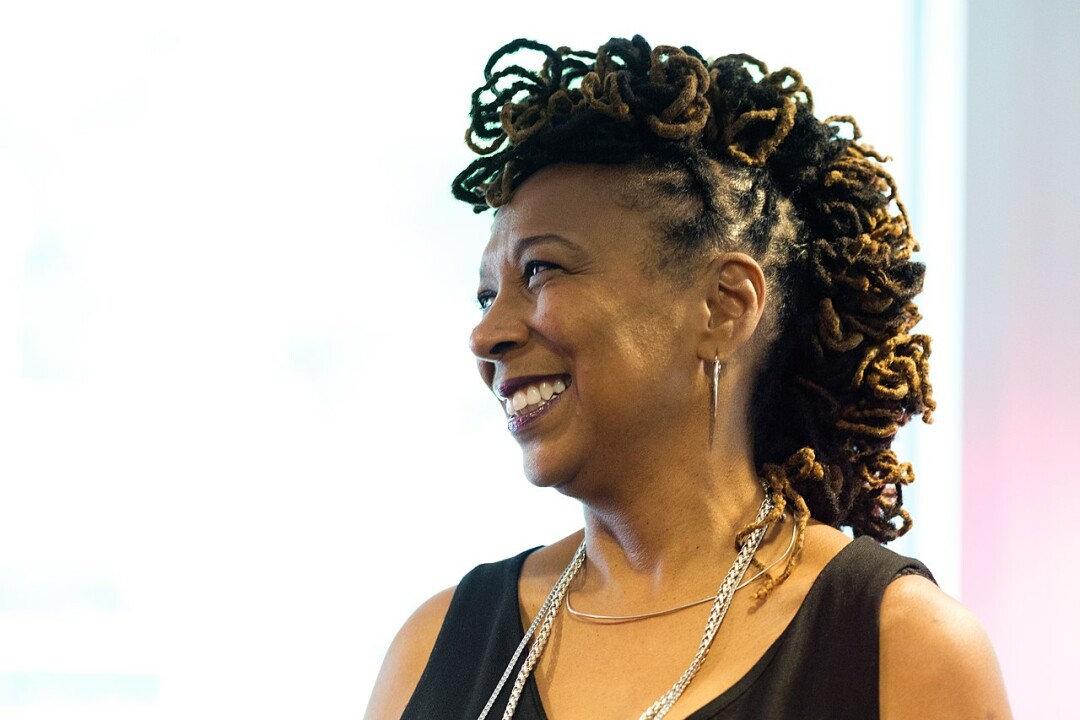5 (More) Wisconsin African-Americans You Should Know About

1. KIMBERLÉ CRENSHAW
If you’ve encountered the concept of “intersectionality” in discussions about race, gender, or class, you’ve run across the ground-breaking scholarly work of Kimberlé Crenshaw. A law professor at both UCLA and Columbia University, Crenshaw holds a master of laws degree from the University of Wisconsin Law School. While in Wisconsin, she was a law clerk to state Supreme Court Justice Shirley Abrahamson. In a 1989 academic paper, Crenshaw coined the term “intersectionality,” which she calls a “metaphor for understanding the ways that multiple forms of inequality or disadvantage sometimes compound themselves and create obstacles that often are not understood within conventional ways of thinking.”
2. JOSHUA GLOVER
When Joshua Glover, who had escaped enslavement, was locked in a Milwaukee jail in 1854, a mob of 5,000 people gathered outside to set him free. Glover had escaped slavery in Missouri two years earlier and made his way to Racine. There, bounty hunters kidnapped him and turned him over to the jail, assuming they’d soon be able to bring him to Missouri under the Fugitive Slave Law. Wisconsin abolitionists had other ideas, and after battering down the jail door they helped Glover follow the Underground Railroad to Canada, where he lived out his life as a free man.
3. GEORGE EDWIN TAYLOR
More than a century before Barack Obama, the little-known Taylor blazed the trail as the first black presidential candidate in U.S. history. Raised as an orphan in La Crosse after the Civil War, Taylor became a newspaper editor and political and labor activist. He later moved to Iowa, and in 1904 was the presidential nominee of the National Negro Liberty Party, which advocated for black citizens’ rights at a time when the political establishment ignored them.
4. ARDIE CLARK HALYARD
Just a single $10 bill – that’s the initial investment Milwaukee’s Ardie Clark Halyard and her husband, Wilbur, made to start Columbia Savings and Loan in 1925. It was the nation’s first black-owned savings and loan, and helped African-American customers buy homes at a time when discrimination made it almost impossible for them to get mortgages. In the 1950s, she became the first female president of the Milwaukee NAACP, led the group’s revival, and fought for housing and school desegregation.
5. MANDELA BARNES
Mandela Barnes became Wisconsin’s first black lieutenant governor – and only the second black person elected to statewide office in Wisconsin’s history – in 2018. Barnes, a former state rep from Milwaukee, was elected on a ticket with fellow Democrat Tony Evers. His upbringing, he says, has led him to focus on increasing the engagement of all people – particularly those suffering from social inequities – in the democratic process. And, in case you were curious, he is named after Nelson Mandela, the first black president of South Africa.






















